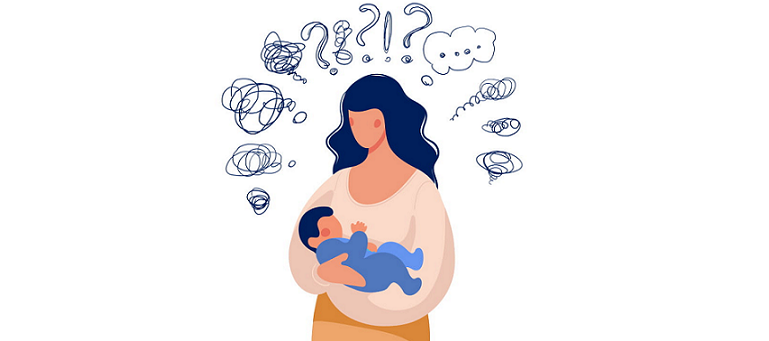Postpartum Mood Disorder (PPMD) is a group of mental health conditions that can occur in women after giving birth. These conditions include postpartum depression, postpartum anxiety, and postpartum psychosis. PPMD can cause feelings of sadness, irritability, hopelessness, fatigue, and difficulty bonding with the baby, among other symptoms.
What Is Postpartum Mood Disorder?
Postpartum Mood Disorder (PPMD) is a term used to describe a range of emotional and psychological conditions that can occur in women after giving birth. PPMD includes several specific conditions, including postpartum depression, postpartum anxiety, and postpartum psychosis.
Postpartum depression is the most common form of PPMD, affecting up to 1 in 7 women after giving birth. Symptoms of postpartum depression can include feelings of sadness, irritability, hopelessness, fatigue, and difficulty bonding with the baby. These symptoms can persist for weeks or months, and can interfere with a woman’s ability to care for herself and her baby.
Postpartum anxiety is another form of PPMD that can cause feelings of worry, nervousness, and fear. Women with postpartum anxiety may have intrusive thoughts about the safety of their baby, and may experience panic attacks or difficulty sleeping.
Postpartum psychosis is a rare but serious form of PPMD that can cause symptoms such as hallucinations, delusions, and disorganized thinking. Postpartum psychosis is considered a medical emergency, and women who experience symptoms should seek treatment immediately.

It is important for women to be aware of the signs and symptoms of PPMD, and to seek treatment if they experience any symptoms. Treatment for PPMD can include therapy, medication, and support from friends and family. With appropriate treatment, most women are able to recover from PPMD and go on to lead healthy and fulfilling lives.
How to Identify Postpartum Mood Disorder
Postpartum Mood Disorder (PPMD) can be difficult to identify, as symptoms can be similar to those experienced by many new mothers, such as feeling tired and overwhelmed. However, there are some key signs and symptoms to look out for that may indicate PPMD:
- Persistent feelings of sadness, irritability, or hopelessness
- Difficulty bonding with the baby
- Lack of interest in activities that were once enjoyable
- Changes in appetite or sleep patterns
- Feelings of guilt, shame, or worthlessness
- Difficulty concentrating or making decisions
- Thoughts of self-harm or harming the baby
If you or someone you know is experiencing any of these symptoms, it is important to seek help from a healthcare provider. A doctor can diagnose PPMD and recommend appropriate treatment, which may include therapy, medication, or support from friends and family.
It is also important to remember that PPMD is a treatable condition, and with the right support, most women are able to recover and go on to lead healthy and fulfilling lives. Seeking help early is key to a successful outcome.

Awareness and Treatment of Postpartum Mood Disorder
There have been many efforts to increase awareness and understanding of Postpartum Mood Disorders (PPMD), as well as to improve access to effective treatment. Some of the changes and initiatives taking place include:
- Increased public awareness: Campaigns and organizations are working to raise public awareness of PPMD, including its symptoms and treatments, to reduce the stigma surrounding mental health conditions in new mothers.
- Improved screening and diagnosis: Healthcare providers are being encouraged to screen new mothers for PPMD and to provide early intervention and treatment. This can include both mental health assessments and access to support groups and therapy.
- Increased research: More research is being conducted to better understand the causes of PPMD and to develop new and more effective treatments.
- Expanded access to care: Efforts are being made to expand access to mental health care for new mothers, including teletherapy and other forms of remote support.
- Greater support for families: There is a growing recognition of the importance of supporting families, including new mothers and their partners, to help them cope with the challenges of parenthood and to prevent PPMD.
These efforts are helping to increase understanding of PPMD, reduce stigma, and improve access to care for new mothers who are experiencing symptoms. By working together, healthcare providers, researchers, and families can help to ensure that all women have access to the support and resources they need to care for themselves and their babies after giving birth.

How to Find Help for Dealing With Postpartum Mood Disorder
If you are experiencing symptoms of a postpartum mood disorder, there are several ways to find help:
- Talk to your doctor: Your healthcare provider is a good starting point for finding help. They can perform a mental health assessment and refer you to a mental health specialist, such as a therapist or psychiatrist, if needed.
- Contact a mental health professional: You can search for a mental health professional in your area who specializes in postpartum mood disorders. Look for a therapist or psychiatrist who has experience treating postpartum depression or anxiety.
- Use online resources: There are many online resources available that can help you find mental health support, including support groups, counseling services, and educational resources.
- Contact a local or national postpartum mood disorder organization: Many organizations exist to support women with postpartum mood disorders, and can provide information, resources, and support.
- Reach out to friends and family: Talking to someone you trust about what you’re going through can be very helpful. If you’re not comfortable talking to someone you know, consider joining a support group for women with postpartum mood disorders.

